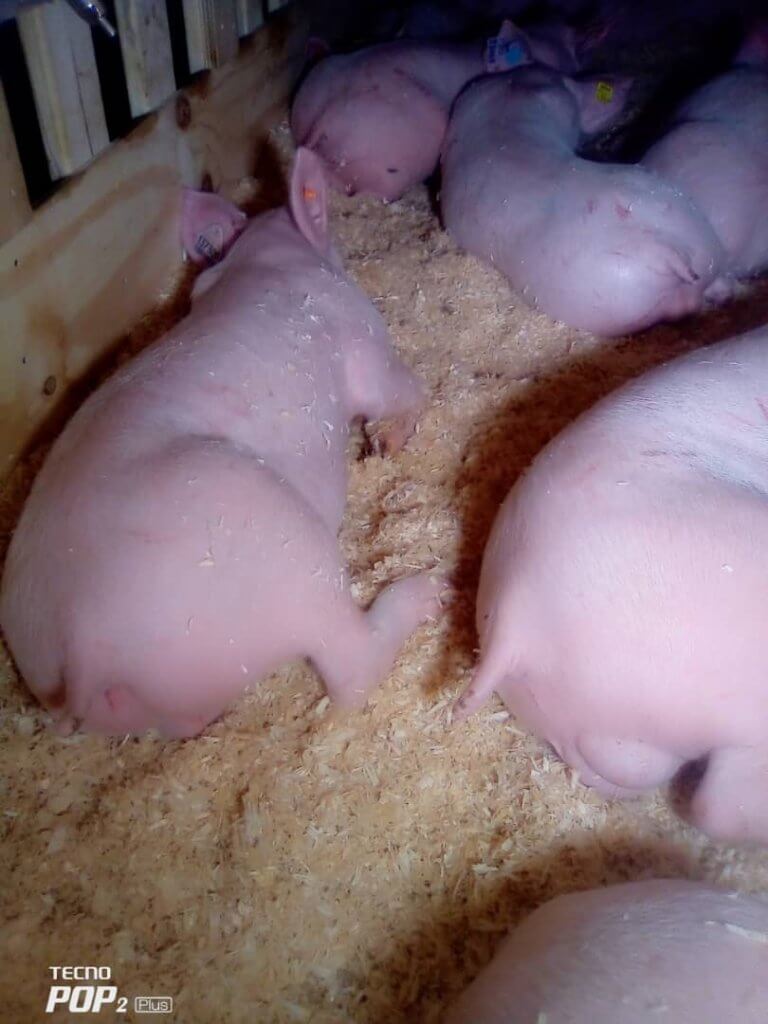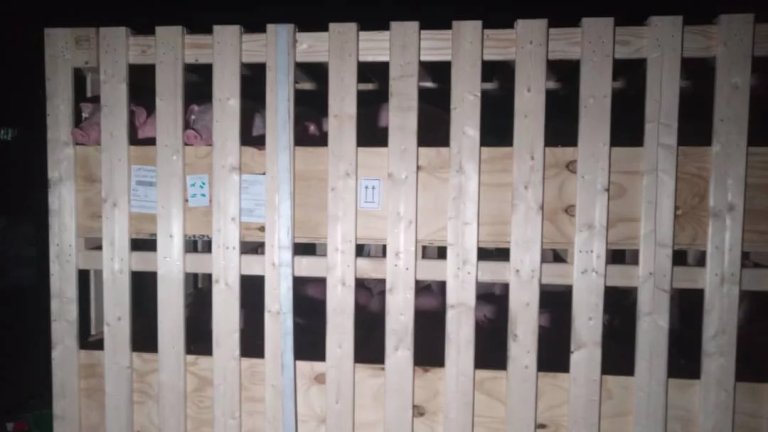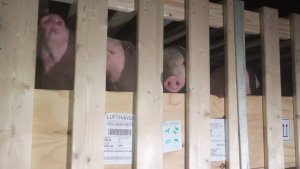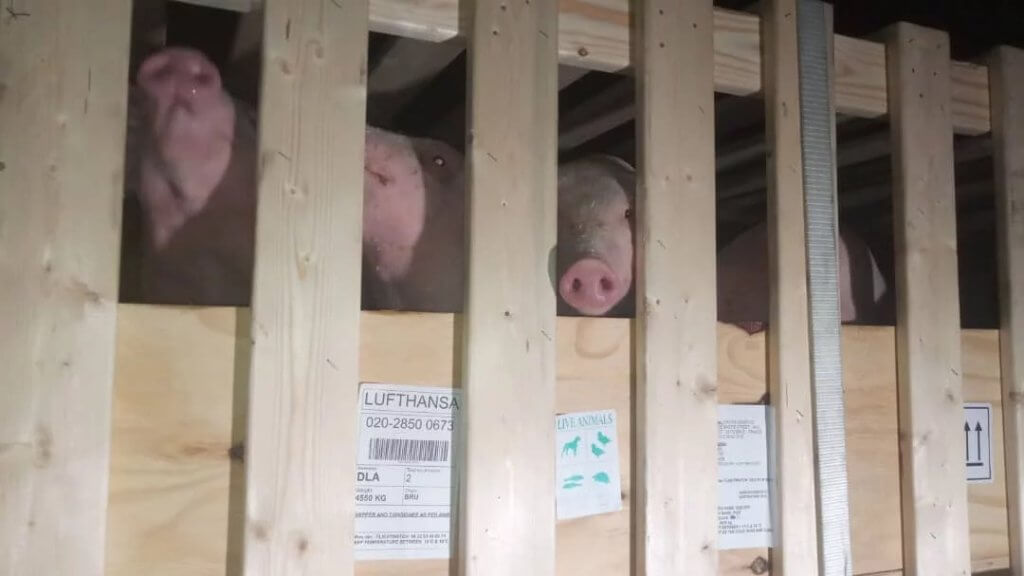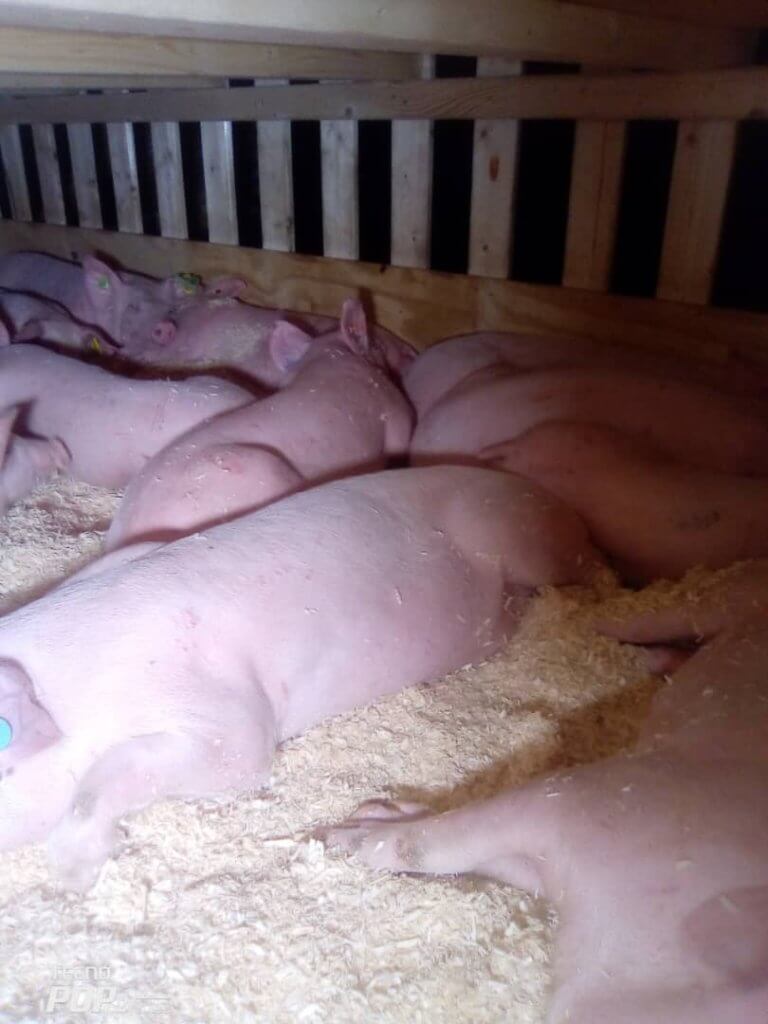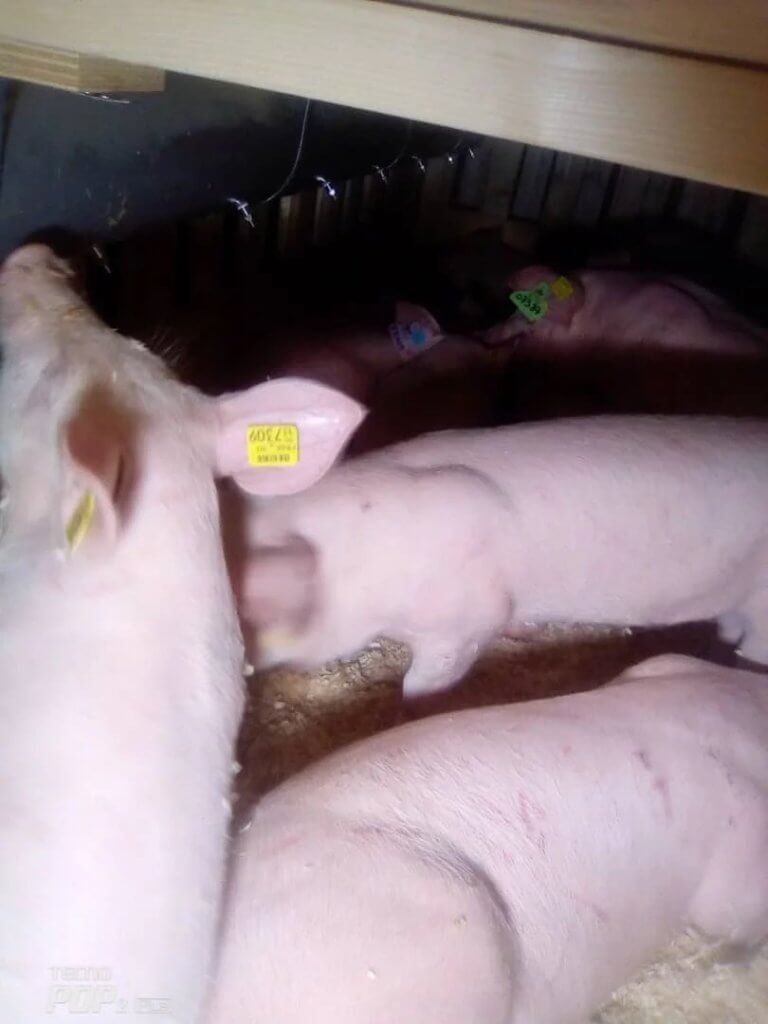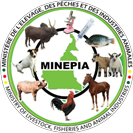REVITALISING THE PORK INDUSTRY
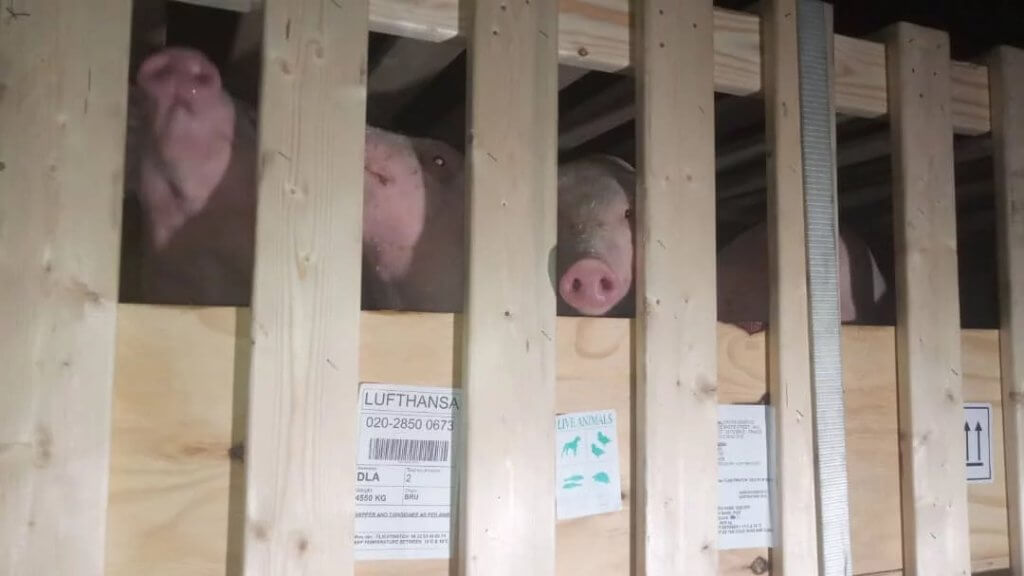
100 pig grandparents landed at Douala international airport from Europe. They were immediately transferred to the Kounden breeding station in the Western region. The station has undergone credible rehabilitation. It is an initiative of the Ministry of Livestock, Fisheries and Animal Industries, MINEPIA. It was carried out through the Livestock Development Project, PRODEL, with funding from the World Bank.
The 100 grandparents will renew the genetics of the sector in Cameroon. The first beneficiaries are producer organisations (POs) specialising in breeding issues. They will receive this brand new genetic material based on business plans previously signed with PRODEL and partner financial institutions, IFP. After multiplication, the breeding farms will resell these improved, high-performance pigs to other producer organisations active in fattening. It is their products that will be sold. The final beneficiaries, the local population, can look forward to white meat on their plates in a year’s time.
Software will be used to monitor the distribution of these improved pigs throughout Cameroon. The aim is to avoid inbreeding problems in the long term, and to make a significant contribution to national food self-sufficiency by providing a meat product at a reasonable price. As a reminder, the last introduction of high-productivity pig breeding stock, via the now defunct Agricultural Competitiveness Improvement Project (PACA), was more than 7 years ago. In the meantime, the ageing of the breeding stock and, above all, the failure to replace it, combined with high levels of inbreeding, have led to a number of problems. The result has been genetic dilution and a lack of quality breeding stock capable of meeting the demands of intensive pig farming.
